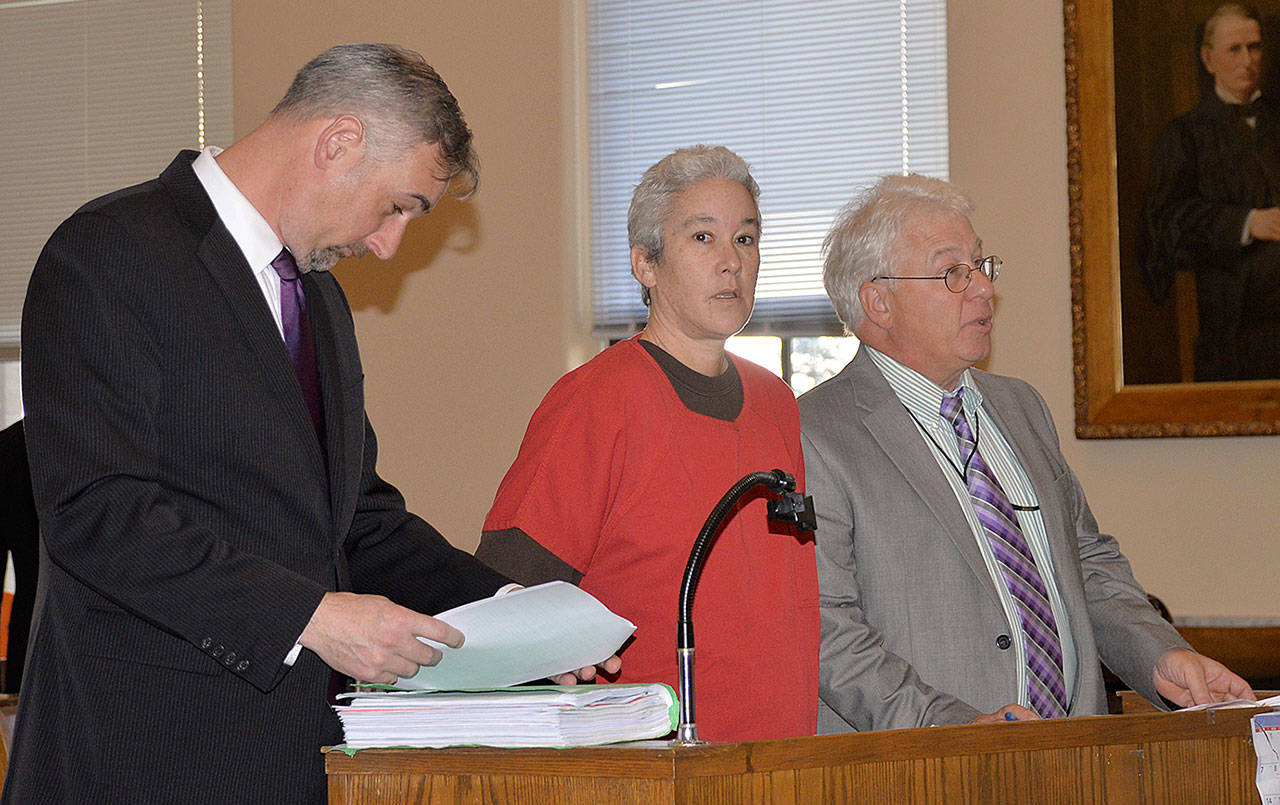Shana Hope Soliz was sentenced to 22 years, the maximum allowable by law, Monday for the November 2016 murder of her roommate, Paul Mottinger, at the home they shared in Hoquiam.
Superior Court Judge David Edwards said it was the safety of the community that weighed most on his decision to sentence Soliz to the maximum.
“My approach to sentencing felony cases is always from the point of protecting the community,” he said. “What do I need to do to protect the community?”
Soliz’s public defender, David Arcuri, argued that his client, when properly treating her mental illness, is of no danger to the community and the low end of the range, 12 years, would be appropriate. Soliz, 47, was diagnosed with bipolar disorder in her teens, according to court records.
“I agree when she is not on a medication regimen she can be extremely erratic,” said Arcuri. He said with the three years community custody required under the plea agreement, “she would certainly be supervised for 15 years.”
Jason Walker, the county’s chief criminal deputy prosecutor, argued that only through the maximum sentence would Soliz not be a threat to the public.
“It is clear her mental state is precarious, and she could easily slip into the delusional state she was in at the time of the incident,” he said. “The safety of the community merits the top of the range. There is no other option to keep her stable long term other than extended confinement.”
Soliz was arrested Nov. 21, 2016, after stabbing Mottinger with a large hunting knife at their home in the 300 block of M Street. She then barricaded herself inside the home. Police arrested her after a five-hour standoff. During court appearances, her behavior was erratic, said Edwards.
“When she is stable she is able to be calm and respectful of court proceedings,” he said. “When she is unstable it is frightening to witness. She has no impulse control in the court and is delusional.”
Edwards said the sentence is the best way to ensure Soliz stays on the necessary medication regimen to keep her stable.
“We had trouble keeping her on her medication when she was in custody here,” he said. “There is no sentence I can impose that would ensure when she is released she will stay mentally stable. My decision is simple, but not easy. She killed a man, and a month earlier could have killed another one. The top of the range is 268 months and 268 months it is.”
Edwards was referring to an incident just a few weeks before the murder, where Soliz attacked another man at the same address with a knife. She had just been released from a short jail sentence when the attack on Mottinger occurred.
Mottinger’s two sons addressed the court on behalf of their father.
“When this all happened two years ago my life and career were going good,” said Jessie Mottinger. “I was hoping my dad would be here to see that.” He was emotional as he described how the incident has been “really difficult for me and my family.”
Paul Mottinger, the victim’s other son, said, “I just don’t understand how someone can take a person’s life like that and ask for a lesser sentence. It makes you mad, it’s not right.”
Soliz made a statement, beginning with, “I apologize to the people who were left behind. But what happened was not entirely my fault.”
She claimed that she was taking medication related to her mental illness, but was also taking drugs, claiming Mottinger “started” her using needles and was “using me sexually.” She continued, “I do blame myself. I know I shouldn’t have done what I did. I cannot take that back, and I apologize.”


